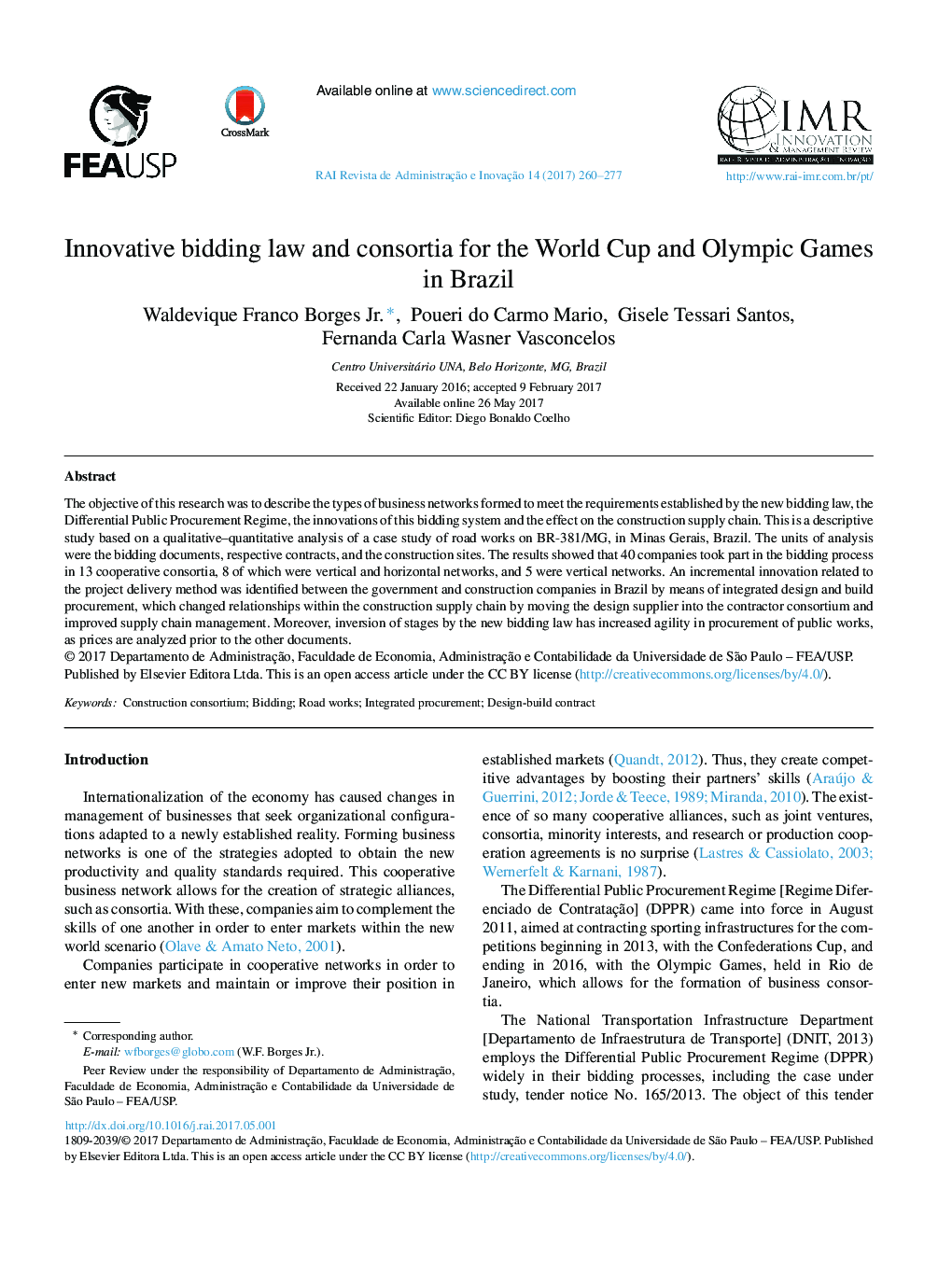| Article ID | Journal | Published Year | Pages | File Type |
|---|---|---|---|---|
| 7429616 | RAI Revista de Administração e Inovação | 2017 | 18 Pages |
Abstract
The objective of this research was to describe the types of business networks formed to meet the requirements established by the new bidding law, the Differential Public Procurement Regime, the innovations of this bidding system and the effect on the construction supply chain. This is a descriptive study based on a qualitative-quantitative analysis of a case study of road works on BR-381/MG, in Minas Gerais, Brazil. The units of analysis were the bidding documents, respective contracts, and the construction sites. The results showed that 40 companies took part in the bidding process in 13 cooperative consortia, 8 of which were vertical and horizontal networks, and 5 were vertical networks. An incremental innovation related to the project delivery method was identified between the government and construction companies in Brazil by means of integrated design and build procurement, which changed relationships within the construction supply chain by moving the design supplier into the contractor consortium and improved supply chain management. Moreover, inversion of stages by the new bidding law has increased agility in procurement of public works, as prices are analyzed prior to the other documents.
Keywords
Related Topics
Social Sciences and Humanities
Business, Management and Accounting
Management of Technology and Innovation
Authors
Waldevique Franco Jr., Poueri do Carmo Mario, Gisele Tessari Santos, Fernanda Carla Wasner Vasconcelos,
